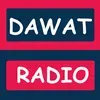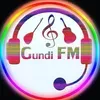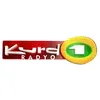Kurdish folk music Live Radio Stations
Radio Stations
Choose a Genre
Kurdish folk music, an integral facet of Middle Eastern cultural heritage, originates from the Kurdish regions spanning Turkey, Syria, Iran, and Iraq. This genre is distinguished by its unique blend of traditional instruments, melodic structures, and poetic lyrics that narrate the rich history and experiences of the Kurdish people.
Instruments and Musical Characteristics
Central to Kurdish folk music are stringed instruments such as the tembûr (a type of long-necked lute), bağlama, and saz, which produce the genre's distinctive melodies. Percussive elements are introduced through instruments like the daf and darbuka, providing rhythmic foundations that are both engaging and conducive to communal participation. The music often features repetitive melodies and rhythms, making it accessible and popular during community gatherings and celebrations.
Themes and Lyrics
Thematically, Kurdish folk songs delve into narratives of love, war, and struggle, mirroring the historical and contemporary experiences of the Kurdish populace. The lyrics are deeply emotional and poetic, capturing a spectrum of sentiments from joy to sorrow. This storytelling tradition is upheld by the dengbêj, esteemed Kurdish folk singers and storytellers who have preserved the region's rich cultural heritage for centuries through their emotive and melodic storytelling.
Cultural Significance
Beyond entertainment, Kurdish folk music serves as a vessel for preserving history, traditions, and identity. It acts as a repository of collective memory, ensuring that the stories and values of the Kurdish people are passed down through generations. Historically, this music has also been a form of resistance and resilience, especially during periods when expressions of Kurdish culture faced suppression.
Notable Artists
Several artists have been instrumental in bringing Kurdish folk music to a broader audience:
Şivan Perwer: A poet, singer, and tembûr player, Perwer is among the most celebrated Kurdish artists. His powerful voice and emotive performances have captivated audiences worldwide, even when his music was banned in certain regions due to its cultural and political significance.
Aynur Doğan: Known for her contemporary interpretations of traditional Kurdish songs, Doğan has played a pivotal role in introducing Kurdish folk music to international platforms.
Mikail Aslan: A Kurdish folk musician proficient in instruments like the tembûr, saxophone, and guitar, Aslan's work reflects the depth and diversity of Kurdish musical traditions.
Modern Platforms and Preservation
In the digital age, radio stations and online platforms dedicated to Kurdish folk music have emerged, providing listeners worldwide with access to this rich cultural heritage. These platforms often feature a mix of traditional and modern Kurdish music, along with interviews with musicians and cultural experts, fostering a deeper understanding and appreciation of the genre.
Kurdish folk music remains a testament to the enduring spirit and cultural richness of the Kurdish people, continually evolving while honoring its deep-rooted traditions.
Instruments and Musical Characteristics
Central to Kurdish folk music are stringed instruments such as the tembûr (a type of long-necked lute), bağlama, and saz, which produce the genre's distinctive melodies. Percussive elements are introduced through instruments like the daf and darbuka, providing rhythmic foundations that are both engaging and conducive to communal participation. The music often features repetitive melodies and rhythms, making it accessible and popular during community gatherings and celebrations.
Themes and Lyrics
Thematically, Kurdish folk songs delve into narratives of love, war, and struggle, mirroring the historical and contemporary experiences of the Kurdish populace. The lyrics are deeply emotional and poetic, capturing a spectrum of sentiments from joy to sorrow. This storytelling tradition is upheld by the dengbêj, esteemed Kurdish folk singers and storytellers who have preserved the region's rich cultural heritage for centuries through their emotive and melodic storytelling.
Cultural Significance
Beyond entertainment, Kurdish folk music serves as a vessel for preserving history, traditions, and identity. It acts as a repository of collective memory, ensuring that the stories and values of the Kurdish people are passed down through generations. Historically, this music has also been a form of resistance and resilience, especially during periods when expressions of Kurdish culture faced suppression.
Notable Artists
Several artists have been instrumental in bringing Kurdish folk music to a broader audience:
Şivan Perwer: A poet, singer, and tembûr player, Perwer is among the most celebrated Kurdish artists. His powerful voice and emotive performances have captivated audiences worldwide, even when his music was banned in certain regions due to its cultural and political significance.
Aynur Doğan: Known for her contemporary interpretations of traditional Kurdish songs, Doğan has played a pivotal role in introducing Kurdish folk music to international platforms.
Mikail Aslan: A Kurdish folk musician proficient in instruments like the tembûr, saxophone, and guitar, Aslan's work reflects the depth and diversity of Kurdish musical traditions.
Modern Platforms and Preservation
In the digital age, radio stations and online platforms dedicated to Kurdish folk music have emerged, providing listeners worldwide with access to this rich cultural heritage. These platforms often feature a mix of traditional and modern Kurdish music, along with interviews with musicians and cultural experts, fostering a deeper understanding and appreciation of the genre.
Kurdish folk music remains a testament to the enduring spirit and cultural richness of the Kurdish people, continually evolving while honoring its deep-rooted traditions.





